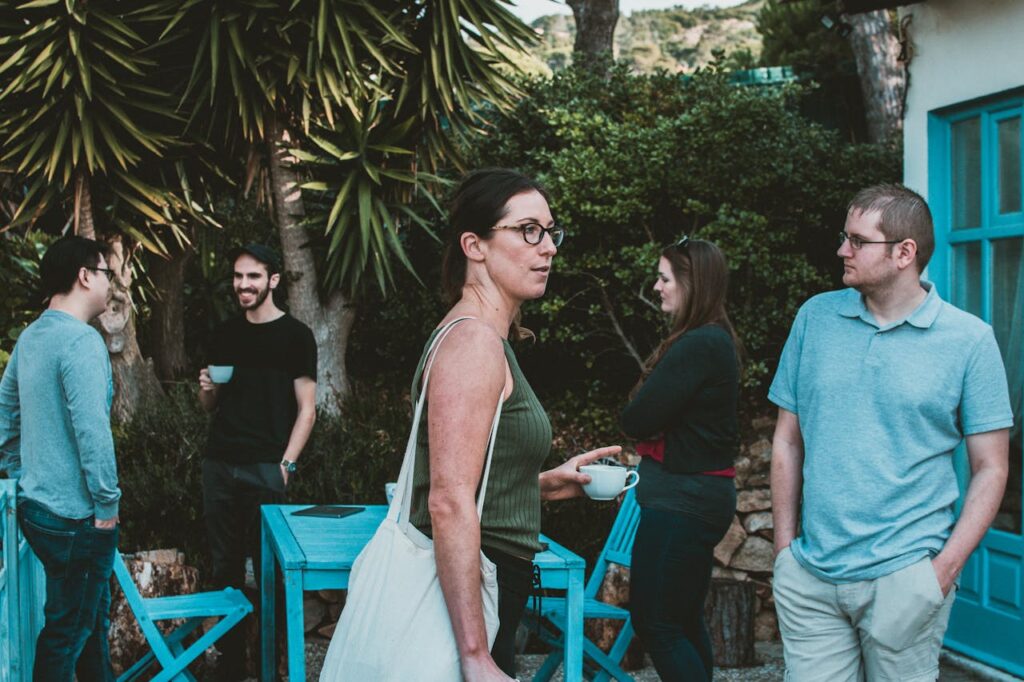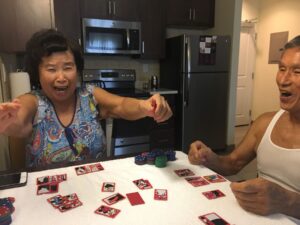In human relationships, our perceptions and attitudes are crucial. One negative trait that often hides underneath is being judgmental. What does it mean to be judgmental? How does it affect our interactions and the connections we cherish? Let’s dive into exploring this topic and uncover how being judgmental can have negative impacts.
Understanding Judgment

Being judgmental is a common human behavior that often arises unconsciously in various situations. It occurs when we form critical opinions or evaluations about others. This is often based on incomplete information, personal biases, or societal norms.
Consider a scenario where you meet someone for the first time at a social gathering. Without knowing much about them, you might instinctively judge them based on their appearance, clothing, or mannerisms. Consequently, this initial judgment could influence your interactions with them. It shapes your perception of who they are before you’ve had a chance to truly get to know them.
Another example of being judgmental can be seen in the realm of social media. People often make snap judgments about others based on the content they post online. A simple photo or status update can elicit a range of opinions and assumptions, leading to misunderstandings and strained relationships.
Moreover, societal norms and cultural stereotypes can also fuel judgmental attitudes. For example, certain professions or lifestyle choices may be stigmatized based on societal expectations or prejudices. Someone working in a creative field, for instance, might face judgment from others who view their career path as unconventional or impractical.
The Impact of Being Judgmental on Relationships

The adverse effects of being judgmental extend beyond individual interactions. They leave a lasting imprint on our social relationships.
Consider a scenario where a friend confides in you about a personal struggle they’re facing. If you respond with judgment rather than empathy, dismissing their experience or giving unsolicited advice, you create a barrier to understanding and support. As a result, your friend may feel misunderstood or invalidated, damaging communication and trust.
Furthermore, being judgmental can take a toll on romantic relationships. Imagine you’re in a partnership where your partner expresses a desire to pursue a new career path or embark on a different lifestyle. If you criticize or question their choices without understanding their motivations, you sow seeds of doubt and insecurity. This lack of acceptance can breed resentment, weakening your relationship.
In familial relationships, the impact of being judgmental can be particularly pronounced. Parents may impose their expectations and values onto their children, critiquing decisions based on outdated beliefs or societal norms. For example, a parent may disapprove of their child’s career aspirations, insisting they pursue a more traditional path. This pressure to conform can strain parent-child dynamics, eroding trust and stifling individual growth.
Moreover, the prevalence of social media exacerbates the effects of judgment in relationships. People often feel pressure to present a curated version of their lives online, fearing judgment or criticism from their peers. This fear of judgment can make people feel inadequate and isolated, hurting real connections and encouraging a culture of comparison and competition.
The Ripple Effect of Being Judgmental

The effects of being judgmental go beyond individual interactions, spreading into our societal structures. Consider the perpetuation of stereotypes and prejudice in media representations. When groups are portrayed negatively or reduced to superficial stereotypes, it reinforces harmful biases.
For example, portraying racial minorities as criminals or the LGBTQ+ community as deviant fuels discrimination and societal divisions. Additionally, in institutional settings like the criminal justice system, judgmental attitudes exacerbate disparities. Minorities often face harsher penalties due to implicit biases, despite committing similar offenses as their white counterparts.
In education, judgmental behavior can affect students’ academic experiences. Teachers’ biased expectations based on backgrounds or abilities contribute to disparities in outcomes. For example, viewing a student from a low-income neighborhood as less capable can limit their academic potential, perpetuating inequality and disadvantage.
Furthermore, judgmental behavior ripples into community dynamics. Ostracizing or marginalizing individuals over perceived differences undermines social cohesion and well-being. For example, stigmatizing mental illness or addiction discourages seeking help, perpetuating cycles of isolation and suffering.
Breaking the Cycle

Breaking free from judgment isn’t easy; it demands self-awareness and introspection. Recognizing ingrained biases from societal conditioning and personal experiences is key. Confronting these biases helps dismantle automatic judgments that cloud our perceptions of others.
Embracing diversity is crucial in breaking the cycle of judgment. It means celebrating human experience and valuing unique perspectives. Instead of seeing differences as threats, we view them as opportunities for growth. This involves seeking diverse perspectives, engaging in dialogue, and challenging assumptions.
Cultivating empathy is the key antidote to judgmental behavior. It involves stepping outside ourselves to connect with others’ experiences and emotions. This requires active listening, setting aside our own assumptions, and sincerely trying to understand others’ perspectives. Empathy helps us see the humanity in everyone, regardless of their background or beliefs, and promotes compassion over condemnation.
Breaking the cycle of judgment is an ongoing process that demands dedication and perseverance. It means consistently challenging ourselves to be open-minded, compassionate, and inclusive.
Fostering Empathy

Empathy serves as a powerful antidote to judgment, enabling us to forge genuine connections with others. Consider a scenario where a colleague makes a mistake at work. Instead of immediately criticizing or blaming them, you take the time to understand the challenges they may be facing and offer support and encouragement. Your empathy not only helps alleviate their stress but also strengthens your professional relationship, fostering a culture of collaboration and trust.
In personal relationships, empathy plays a crucial role in navigating conflicts and strengthening bonds. For example, if your partner expresses frustration over a disagreement, you might pause to empathize with their perspective before responding. By acknowledging their emotions and validating their experiences, you create space for open communication and mutual understanding, deepening your emotional connection and resilience as a couple.
Moreover, empathy extends beyond individual interactions to broader societal issues. For instance, consider the plight of refugees fleeing conflict or persecution. Through empathetic understanding, we can recognize the humanity and dignity of these individuals. This encourages advocating for compassionate policies and support systems that address their needs and aspirations. By standing in solidarity with marginalized communities and amplifying their voices, we can work towards a more inclusive and equitable society for all.
In essence, fostering empathy is about cultivating a mindset of openness, understanding, and compassion in our interactions with others.
Conclusion

Regardless of the context, the adverse effects of being judgmental are profound. When we allow our biases to dictate our perceptions of others, we risk alienating them and hindering meaningful connections. However, by recognizing and challenging our judgmental tendencies, we can strive to foster empathy, understanding, and acceptance in our interactions with others.














